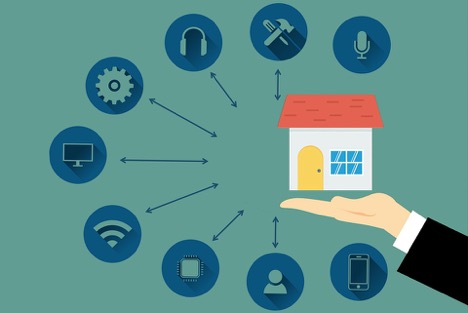

You’ll find the busier you are, the harder it is to always be available for your kids. Any parent will tell you that there will be times when they have to leave their kids home alone for any number of reasons. Still, just because you’re not home doesn’t mean you can’t keep your kids safe when you’re not around.
Thousands of children die every year due to home-related accidents and millions are taken to the emergency room due to injuries in the home.Many of these accidents can be prevented with the right steps in place. Let’s look at 8 ways to keep children safe when they are alone.
Putting tracking apps on your child’s phone
One way to keep your kids safe is to put a tracking app on their phone. These apps use GPS technology to triangulate the position of a signal and report an approximate location to you.
These types of apps have multiple uses, such as tracking down a phone that your child has lost. Kids tend to stay glued to their phones 24/7, so you should always be aware of where they are at all times.

Purchase a smart automation system
Children are naturally forgetful which means it’s inevitable they’re going to leave a door or window open at some point and forget to go back and close it. Thankfully this is a problem that can be remedied by purchasing a smart automation system.
Home automation systems range in what they can do, but common features include systems that lock doors when they’ve been left unlocked and notifications sent to the homeowner when windows have been left open. They are best when combined with a security camera system to keep an eye on who is entering and exiting, or who is approaching the home.
Automation systems also allow you to control the temperature of your home, meaning you can make sure your children are comfortable at all times.
Teach your kids to be more aware of their surroundings
Being aware of your surroundings is key to any situation in life, but especially when your kids are involved. Teach your kids to observe things that may look out of place. If a strange car is sitting in front of the house for example, they should call you immediately.
You should also teach your kids what they should do in the event of an emergency, and never to open the door for a stranger no matter the circumstances. Furthermore, your kids should never leave the house without your, or a trusted adult’s, explicit permission.
Don’t forget to teach your kids about fire safety. If a fire were to break out, teach them to run to a neighbor’s house to call the fire department.
Prepare safety checklists for your children
You can prepare your children for any emergency that may arise by preparing a checklist. You can begin by making a list of rules of what you find to be acceptable when you’re not around. Your checklist should also include:
- Emergency contact numbers such as 911.
- Your cell and work number. Also, write down the phone numbers of family members and, if possible, write down the phone number of a trusted neighbor.
- Properly cover all unused electrical outlets, and educate your children on the dangers of electricity.
- Have a first aid kit on hand where your kids can easily reach it and teach them how to apply bandages, how to disinfect wounds, etc.
Ensure your children are ready for the responsibility of being left alone
You likely won’t find any laws governing an appropriate age range for children who can be left unattended at home. Frankly, age and maturity should play a huge role in your choice, but generally speaking, children who fall into the age ranges of 10 and older are typically ready to look after themselves while alone (at least for the short term).
Teach your kids on what they should do when left alone. You know your child best. You’ll know if they’re ready for the responsibility of being left home alone.
Keep dangerous objects out of reach
You should keep all dangerous items out of reach of children such as knives, cleaning chemicals, toys with pointy edges, paint and prescription medication. Sometimes placing dangerous tools up high may not be enough.
Kids tend to be smarter than we give them credit for and they may figure out a way to climb up and get into a bit of mischief. The best way to keep dangerous objects out of the hands of your children is to lock them away in a cabinet and take the key with you.
Monitor what your children are doing online
Kids may think you’re being a tyrant when you limit their online activities, but without your intervention, they may be open to all sorts of dangers on the internet such as child predators, pornography, and other like things inappropriate for children.
Teach your kids about internet safety and use a firewall to limit their access to certain types of inappropriate sites. Also teach them to never give away personal information such as their phone number, home address, and the like.
You should also teach them about the dangers of social media. Cyberbullying has become a rampant issue that has led to low self-esteem and even suicide amongst younger children and teenagers.
Install security cameras
Just because you’re not physically home doesn’t mean you can’t watch what your children are doing at all times. Security cameras allow you to view what’s happening in your home in real time while you’re away. This should give you peace of mind as you go about your workday. Purchasing the right cameras can be tricky; to help we suggest reading the guide about how to choose security cameras.
Keeping your children safe while you’re away
Ensuring the safety of your children should be your top priority. Employing the above tips will keep your children safe and give you peace of mind while you’re away from home. Soon enough you’ll be able to return home to find your children safe and sound.

